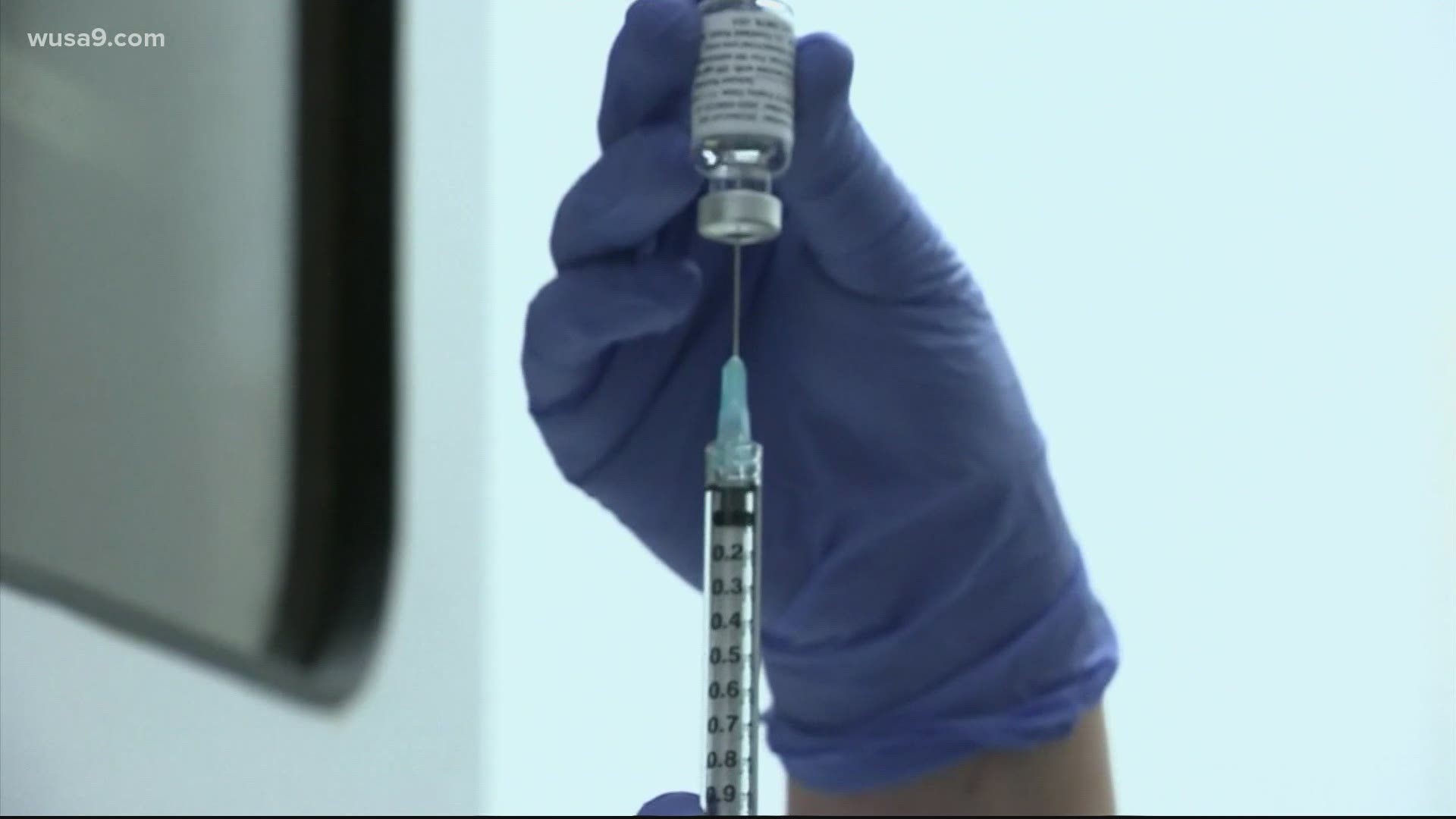GAITHERSBURG, Md. — How is the Novavax COVID vaccine different from Moderna, Pfizer, and J & J, and does the U.S. need it? Mayo Clinic and Johns Hopkins doctors weigh in.
WUSA 9 spoke with Senior Scholar at the Johns Hopkins Center for Health Security and infectious disease physician, Dr. Amesh Adalja, and Mayo Clinic Vaccine Research Group Director and Professor of Medicine and Infectious Diseases, Dr. Greg Poland to get answers.
QUESTION: How does the Novavax vaccine work, and how does it compare to the Moderna, Pfizer, and Johnson & Johnson vaccines?
ANSWER: It's a two-dose series with similar side-effects to the already-approved vaccines. It does not require the extremely cold storage that the Pfizer vaccine does. The biggest difference, doctors said, is the technology in the vaccine.
“The mRNA is sending the genetic blueprint; the adenovirus vector vaccine is sending the DNA blueprint; Novavax is taking the genetic blueprint, producing the protein, then extracting that protein, pairing it with an adjuvant, which stimulates an immune response," Dr. Poland said. "And that's what the injection is.”
QUESTION: What is the significance of another vaccine with 90% efficacy? Does the U.S. need a fourth vaccine?
ANSWER: “I think the significance is the fact that we've got now a menu of vaccines," Dr. Adalja said. "Certain ones may be better for certain situations, especially when there's cold storage issues at stake.”
“By having four different options, and we will have more, we can choose the right vaccine for the right patient at the right time," Dr. Poland said. "For example ... For a younger woman like yourself, you might say, I don't want to take an adenovirus vector vaccine, because there is some small risk of a blood clot. And I can't take the mRNA vaccines, because I've had anaphylaxis or allergic reaction to one of the components, Novavax is now going to be my answer ... The other thing is, we don't know how each of them might vary in their ability to block these more and more emerging variants of vaccine. And then finally … the more vaccine the better, because … There are no three manufacturers that can supply the 14 billion doses we need on the planet.”
Novavax said it plans to apply for Emergency Use Authorization in the next few months.
The Gaithersburg-based company also said it is on track to produce 100 million doses a month by the end of September and 150 million doses a month by the end of 2021.
Dr. Poland said it's important to remember that these studies were done in the U.S., Mexico, and the Republic of South Africa when there was no delta variant circulating, so researchers don't have those results. But — he speculates the efficacy will still be high.
“I've been a vaccinologist for four decades, and … I never would have guessed this with any of these vaccines with a first generation vaccine against a virus like this," Dr. Poland said. "This is just, you know, the fourth time I've sat back amazed.”
QUESTION: What does this "menu" of highly effective COVID vaccines mean for the future of vaccine production?
ANSWER: "The future of vaccines looks very, very bright. I think that we're really seeing a revolution in vaccinology, with all of these vaccine platform technologies that really weren't around 20 years ago now, and really being able to rise to the occasion, and be the leading candidates for a public health emergency," Dr. Adalja said. "I do think this is going to change the way that we face infectious disease threats, especially emerging infectious diseases, where speed is of the essence. And now they're already talk of, you know, for the next pandemic or the next infectious disease emergency having a vaccine within 100 days being the goal."
Dr. Poland still worries about vaccine hesitancy as countries and communities around the world still face COVID crises.
"The other thing that I can't help but notice is, you know, here in the West, today, you can walk in and get a vaccine. And yet we have 40-50% of the population that rejects them. Overseas, they're crying for these, but they would give anything to have the vaccine while we're rejecting them," Dr. Poland said. "It's just unbelievable. And you see the consequence of this in terms of the outbreaks and the deaths."

